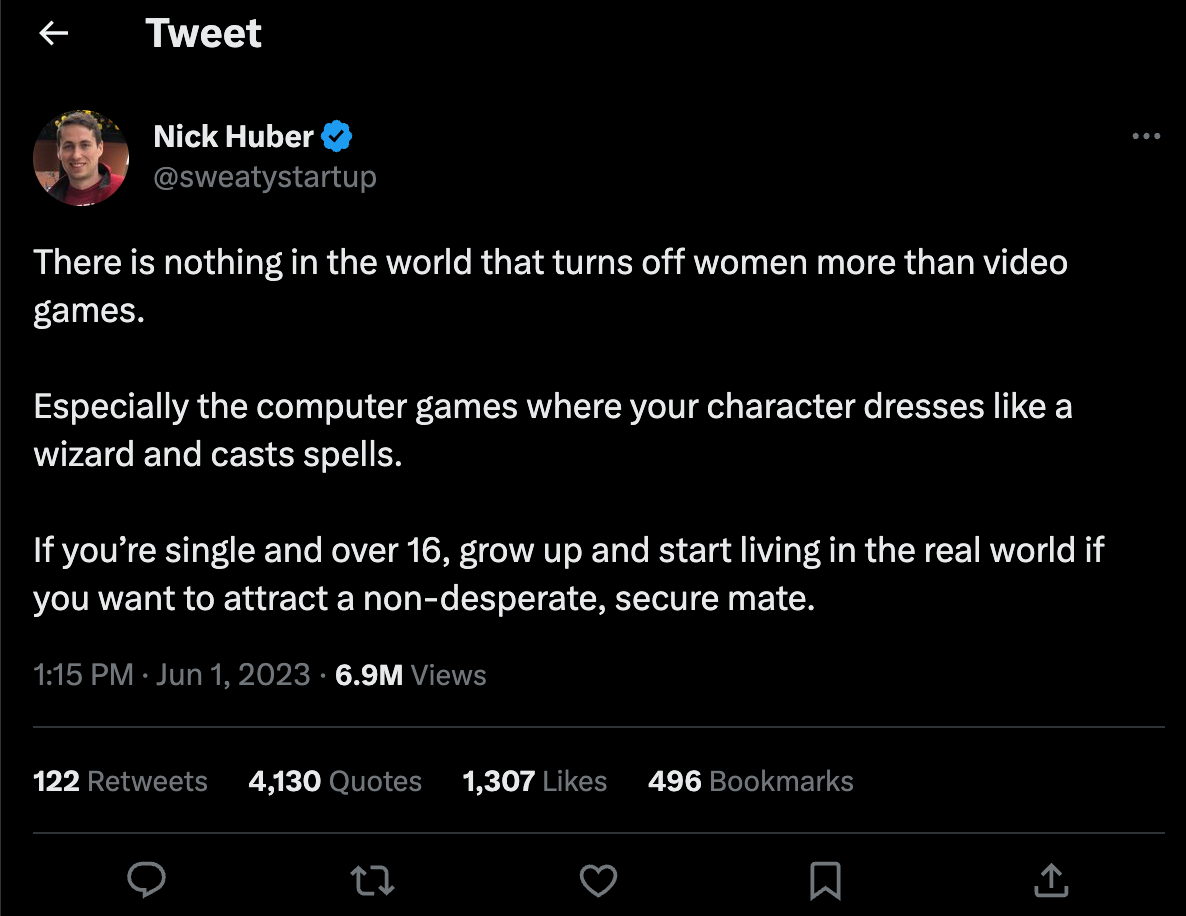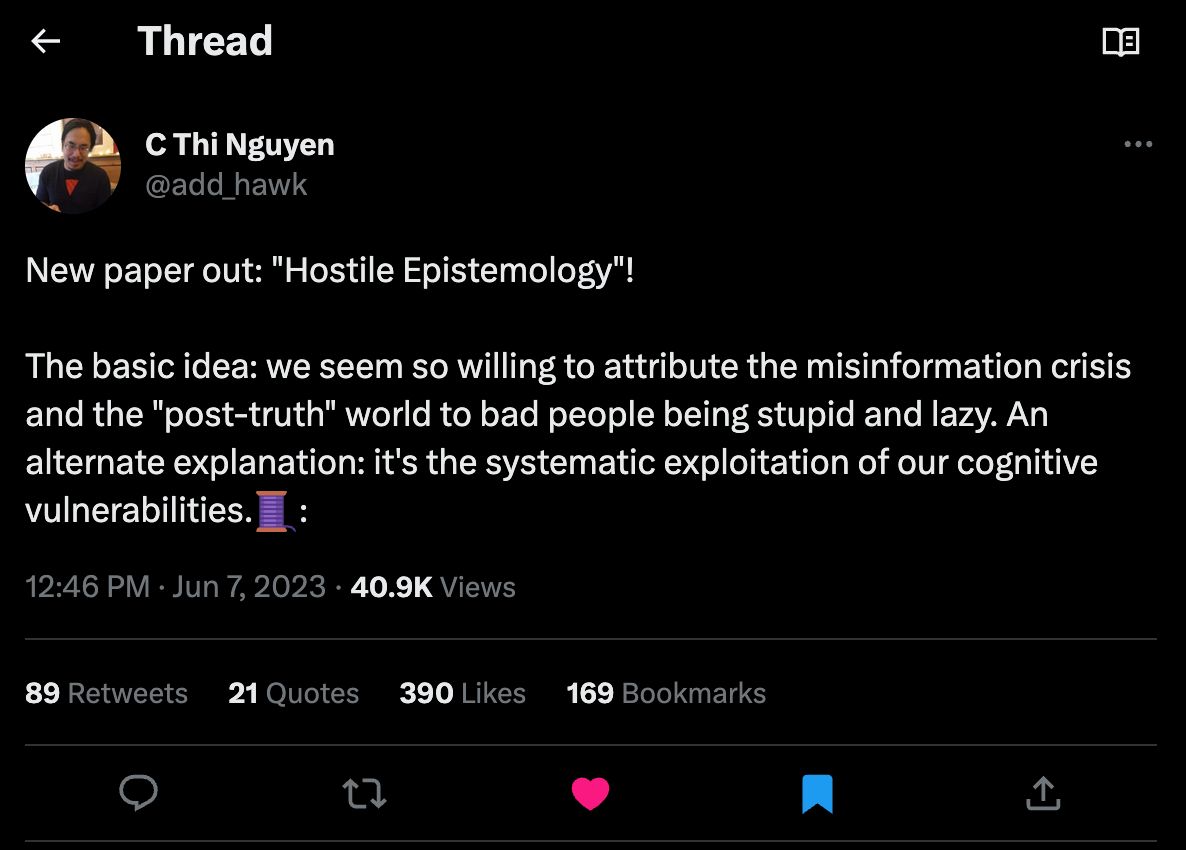Trust Economies - The Future of Social Networks

I've been exploring the concept of trust and how it drives everything we do. When I got into crypto, I kept hearing about the need for "trustless networks". But the problem with that is that there is no such thing in human existence.
Remember, technology reflects humans, not the other way around.
When exploring human networks, you can see an important pattern: money follows trust. That, of course, makes sense. Would you give someone money for something if you didn't trust them?
Of course not.
But this gets interesting when doing things online, because you could be anyone online right?

You could even be a dog.
In the early days of the internet, people (i.e. your parents, the media, teachers, etc) told you not to trust anybody you met online.
Don't date anyone online, never get into a car with a stranger, never put in your credit card info....
But over time, things like Tinder, Uber, and Paypal/Stripe became prevalent, right? They figured out ways to package up enough trust that the average consumer was willing to give it a shot.
And we got social media, which is a weird place.
On one hand, we've got people building businesses they never would have dreamed possible, because they've managed to gather huge audiences and monetized them in various ways.
But on the other, we've developed an incredibly fractured experience online. Social media has evolved to pit us against each other, because outrage is the most obvious form of engagement.
When people look at their analytics to see what gets more reach, the stuff they say that outrages people gets the highest numbers, and they double down on that. As an example, I'm going to point to Nick Huber.
He's been masterful at saying things the most outrageous way possible, because when he does so, Twitter makes sure his stuff gets shared far and wide.
Exhibit A:

I've gotta admit, I'm a little bit in awe of how well he plays the game. But I don't quite have the right mindset to pull that off. The one time I went viral for a similar type of thing, my mental health took a giant blow and it took me a couple of months to recover.
Let's think about why Twitter does this. First of all, Twitter is a company that is trying to make money. So we've got to start by looking at what they are measuring. If they are measuring the things that make them money, they'll be focusing on advertising (though they've got a few different mechanisms they've been experimenting with more recently). And if they want to optimize on number of eyeballs on ads because more eyeballs will in theory yield more clicks, which then yields more revenue, they've got to try to keep people online and engaging with content.
The distribution algorithm isn't a clear-cut thing. It's been worked on by a bunch of people on a bunch of teams over the years, and tweaked based on these incentives.
So now we can look at the overall results, which shows us that people as a whole tend to react in larger groups when there's outrage to be had. Some groups of people have seen this and taken advantage of it. That's what I took advantage of when I went viral. If you appeal to one of the major tribes, you get double the engagement: positive from one side and negative from the other.
And when you do that over and over, you can quickly grow your following as a subset of one tribe.
But here's the biggest problem: that's not necessarily a valuable audience, because they can turn on you at any point. There's not a lot of trust there, they only trust you as long as they see you as a member of their tribe. Dare to step out of line and the tribe turns on you. Especially because there are a bunch of people competing on the outrage scale, and when people compete, the bar goes up and up. This means you have to be more and more outrageous to reach the same numbers.
Let's dig a little deeper into this behavior. When a random person enters the social media landscape, there's a lot going on. Do you follow celebrities? People you know? People you aspire to? World leaders? News outlets? Sports teams? And so on and so on and so on....
A lot of this depends on the social media platform. Twitter likes to ask you about topics and recommends big accounts that tweet about those topics. When you are picking, you are putting trust into those accounts, trusting your attention to them on the platform. And you're trusting Twitter with that data, hoping that they will use that data to show you others things you might be interested in.
Here's the key that most people don't see: your attention is valuable. And social media sites like Twitter know this and build their revenue models on it. So they direct your attention where it's most valuable to them, not to you.
The solution to this is to take control of your attention and put it where it benefits you the most. But the majority of users don't think that way. And there's another factor at play:
The social media platforms aren't the only ones who realize your attention is valuable. There are a bunch of users who also want your attention. This might be people trying to capture your attention in order to sell you something. Or it might be someone trying to capture your attention in order to sell ads they can place in front of you. Or they might be trying to capture your attention in order to convince you to join their tribe.
This means there are a lot of forces competing for someone's attention, so we default to various heuristics that we use in order to determine who we trust with our attention.
Social media platforms know this, and try to offer various mechanisms that show us who and what we are interested in: follower counts, likes, views, etc.
This results in a weird phenomenon: because part of the population on a network are focusing on the metrics and part of them are focusing on their behaviors, the average trust between two people on the network becomes zero. That means that most people who see your content won't trust you at all, and therefore, will read your content in the most negative way possible. Ever see a response to someone and wonder "How on earth did they get that meaning from that post?" Usually, you'll think that in the context of someone who has earned your trust, so you'll interpret what they say in the most positive way possible, but the person responding doesn't trust them, so they assume the worst.
This is doubly true when you factor in the outrage-based incentives I mentioned earlier. When the algorithm rewards outrage, outrage becomes the default behavior.
That's a lot to overcome for any creator. That's why funnels exist. You can progress people through trust levels.
On social, get them to trust you enough to subscribe to your newsletter.
Once they are subscribed to your newsletter, you can craft a welcome sequence that builds trust and get them to the next step, whatever that may be. And so on, until you've got people who are primed to buy from you. Or you can just sell sponsorships, and market your audience's attention to people who might be interested in it.
I'll be honest: I really dislike that approach. I started to go down that route, but it just doesn't feel right to me. I don't want to capture attention. Maybe it's scarring from my viral experience, but I'd much rather share what I'm paying attention to and why. Since I started focusing on my attention and where I put it, I'm much happier, I'm much more productive, and I've got much more agency in my life.
Suddenly, I'm progressing toward goals that I never would have thought possible 3 years ago. I want others to see the power in this, and I'm helping those around me see it. I've recently started offering coaching to people who are interested in following this method of doing things. And based on that coaching, I'm also working on a course for people.
The internet provides a ton of opportunities for us to craft the lives we want to live. But it's really inefficient, because everyone's competing for everyone's attention and that means you have to figure out how to stand out enough to be seen by enough people over a long enough period of time. Trust is transferrable, which is why there's a lot of focus among creators about the idea of "social proof", but this is another thing that's being scaled up to the point of being meaningless by default.
At large scales, average anything goes to zero. So when someone finds something that works, they share it. Then a bunch of people copy it. And it becomes meaningless. Then someone else does something to capture attention and the cycle continues.
How can you avoid this pattern though? Isn't the internet all about scale? If you listen to investors, it is. That's because their whole model is to scale things up to the extreme. They want maximal growth in the shortest amount of time possible.
But here's my "spiky point of view" on this: the future of social media is small and focused, with participants aligned on incentives. When you can align the incentives for all users on a given network, you can build trustful networks that are more beneficial to both users of the network and owners of the network. There's some push for networks that have the users as the owners, but I think that's going to be harder to pull off, because most people just don't worry about the networks at all, much less owning them. So it then becomes a matter of the most useful networks, and those will end up being high-trust networks where you don't have to compete for attention. Think of it like a bunch of small, gated communities. If someone is in the community, they at least were trustworthy enough to make it past the guard at the gate. This means that people are given much more benefit of the doubt, and when people can interact in that way, it's a lot easier and more fun for all involved.
This will be enabled by a bunch of custom algorithms implemented on decentralized protocols like Bluesky, Farcaster, Mastodon, and Nostr. Even though millions of people might be on a given protocol, you'll be able to tune the size of your social network to match your needs. And when you aren't being bombarded by thousands of people competing for your attention daily, you'll be able to direct your attention where you want, which means you'll have the agency you deserve.
Here's a good thread on how people exploit this trust.



Member discussion